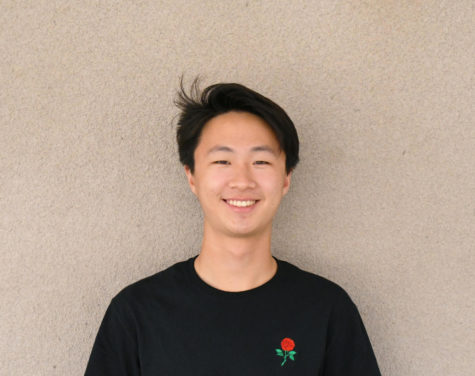Vermani interns at NASA GeneLab to study space biology
August 27, 2021
As the president of Science Olympiad and with numerous STEM internships under his belt, Aakarsh Vermani (12) doesn’t remember a time when he didn’t love science.
This summer, Vermani explored that love at NASA’s GeneLab for High Schools (GL4HS), where he learned about the intersection between space travel and biology and studied how space flight affects the molecular biology of astronauts.
The intersection of different fields in science has always appealed to Vermani. As someone whose interests started with dinosaurs, led into geology, and eventually to engineering through elementary school robotics and the dozens of events he’s completed in Science Olympiad, he says he can never limit himself to just one field of science.
“I think getting that experience in so many different fields really just showed me how much I really loved science,” Vermani said. “And to be honest, that’s why I feel like I’ve never really had one science in particular that I gravitate to all the time, because I just find them all so interesting.”
The four-week program started the Monday right after the school year finished. The first two weeks were mainly educational—Vermani, along with 14 other students selected for the program, learned alongside real space biologists.
During his time at GL4HS, he learned more fundamental concepts in space biology such as RNA sequencing, which can be used to analyze the way gene expression changes after astronauts undergo space travel.
“For one of our guest speakers, there was a scientist from Illumina, which is the leader in [RNA sequencing] technology,” Vermani said. “It was really interesting to learn about the [sequencing] technology, and I think it’s a great example of the intersection between biology and engineering.”
In the second half of the program, the 15 students were split into groups of three, given data from a spaceflight to analyze and asked to write a 4,000-word proposal on the effects spaceflight had on astronauts’ DNA. At the end of the program, each group presented their proposal to the rest of the students along with the guest speakers who spoke earlier in the program and various space biologists.
“Overall, I think the program was a good way for me to stay busy doing something I was interested in,” he said.
While he found the program itself enjoyable and intriguing, Vermani says the most important thing he learned was from the guest speakers’ personal experiences.
“In particular, what I really enjoyed hearing was the different researchers’ paths that they took to get where they are now,” he said. “I’m really unsure of what I want to do, and it was really comforting to see how all these different scientists started out. Some of them started out wanting to be engineers. One of them studied drama. The main takeaway I got, though, was that you can always switch paths in your career, and it’s normal to not end up doing what you set out to do.”
For now, Vermani will keep looking for opportunities to exercise his interest in science.
“I think my mentality is to just look for as many interesting opportunities as I can and keep trying to find things out about myself and about what I like, and just learn in general,” he said. “My initial goal with this program was to learn a new skill and maybe figure out something I want to do with my life. I’m really grateful for the experience I had.”


